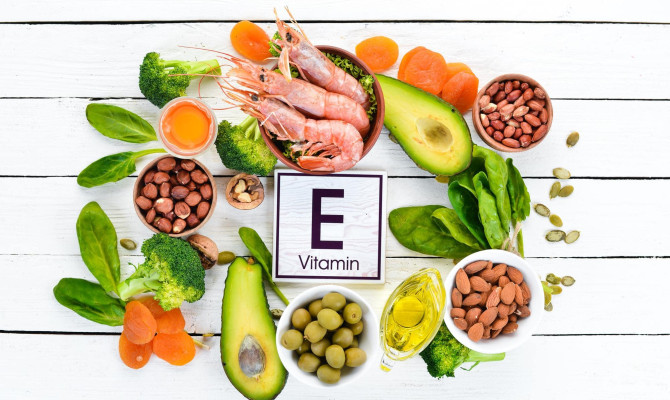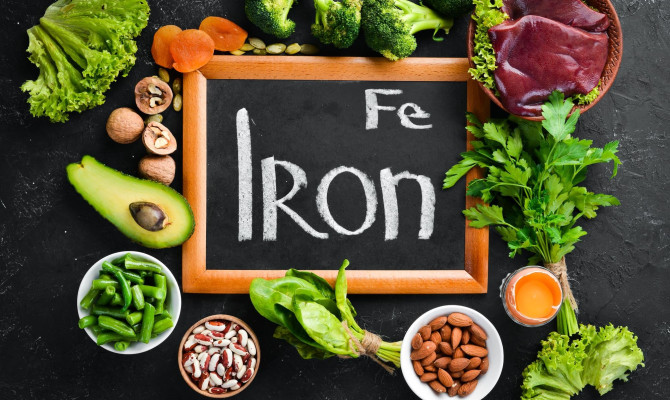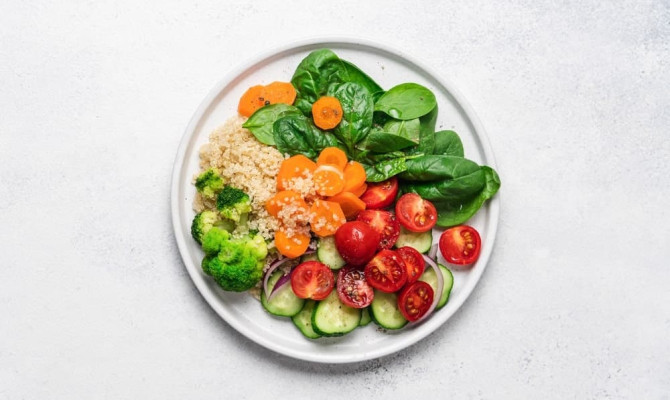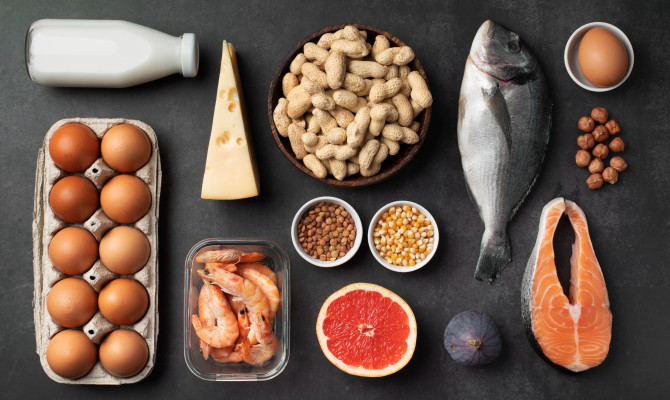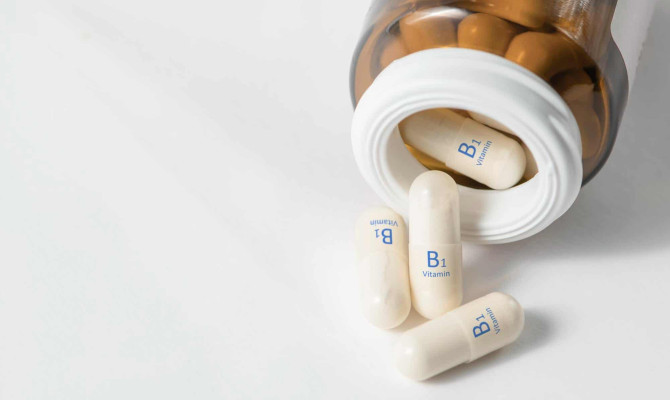Honey : Types, Uses, and Benefits

- Honey
- 16 Aug 2023
Overview
What is Honey?
Bees produce Honey, a naturally sweet material, from the nectar of flowers. It is mostly composed of carbohydrates, with minute quantities of additional vitamins and minerals.
Popular in the culinary world, scientists are also studying it for its possible health advantages.1Overview| Researched based study from Nlm.nih.gov

A brief history
- People have utilized it for countless years, which is significant to several cultures.
- According to historical records, Honey was used as a sweetener and for therapeutic reasons in Sumeria as early as 2100 BC.
- Additionally, Honey was used by the ancient Egyptians as a medicine, to embalm their dead, and as an offering to their gods.
- It was precious and used as money in ancient Greece.
- It was used to heal wounds and stop infection during World War II.2Overview| Researched based study from Nlm.nih.gov
Interesting facts
- Because of its different chemical makeup and low moisture content, Honey never goes wrong. Even containers that have been in ancient Egyptian tombs for thousands of years and are still edible have been discovered by archaeologists.2Overview| Researched based study from Nlm.nih.gov
- There are two million flower visits needed to produce only one pound of honey.
- In the United States alone, there are over 300 kinds of Honey, each with a distinctive flavor and color based on the flower the bees fertilized.2Overview| Researched based study from Nlm.nih.gov
Types
What are the various types?
Clover honey
- This Honey has a pale color and is mild and pleasant. It is the most common type and is produced from clover flower nectar.
Wildflower
- This darker Honey is created using a variety of wildflowers’ nectar. It has a more complex flavor with flowery, earthy, and spicy overtones.
Manuka
- This dark, viscous honey is made in Australia and New Zealand from the nectar of Manuka trees. It has a reputation for being antibacterial.6Types| Researched based study from Cancer.gov
Buckwheat
- Produced from the buckwheat plant, this Honey is black and strong. The flavor is strong and earthy with traces of molasses, frequently used in baked products.
Acacia
- Honey, which is made from acacia trees and is light in color. It tastes delicate and flowery. Tea and coffee frequently include it.
Eucalyptus
- Honey made from eucalyptus blossoms that is darker. It is frequently used as a natural cure for respiratory problems and has a distinctive medicinal flavor with menthol undertones.
Uses

What are the uses of Honey?
As a pure sweetener
- Honey may be used in cooking and drinks as an excellent substitute for sugar.
To heal wounds
- It works well to heal wounds, burns, and other skin diseases because of its antibacterial and anti-inflammatory qualities.
Skincare
- It is a natural moisturizer that may be used on the skin as a face mask or as part of homemade skincare products to hydrate and nourish it.
Cough and sore throat
- It has been shown that using a natural cough suppressant is just as effective as using over-the-counter cough medicine. A sore throat might also be relieved by it.
Digestion
- It can promote digestion and ease the signs of digestive issues such bloating, constipation, and diarrhea.
For energy
- It has natural carbohydrates and might provide you an immediate energy boost.
- Athletes frequently eat it before working out.
Preservative
- It is an excellent natural preservative since it has inherent antibacterial characteristics. Fruits, vegetables, and even meat may all be preserved using this method.1Uses| Researched based study from Nlm.nih.gov
Allergies
- By exposing the body to minute quantities of pollen and gradually boosting immunity, local honey consumption may help with seasonal allergy symptoms.
Hair care
- It may be used on hair as a natural conditioner to hydrate and nourish it. It can also assist in calming an irritated scalp.1Uses| Researched based study from Nlm.nih.gov
Health benefits
Health benefits of Honey
Because of its unique nutritional qualities and composition, Honey provides several health advantages. Here are a few examples:
A source of antioxidants
- It is a natural source of antioxidants that aid in defending the body from free radical damage and lowering the risk of chronic illnesses, including cancer, heart disease, and Alzheimer’s disease.1Health benefits| Researched based study from Nlm.nih.gov
Anti-inflammatory properties
- It can aid in reducing bodily inflammation and easing the signs and symptoms of inflammatory diseases like arthritis.
Increases immunity
- Because it has antibacterial and antiviral properties, it can aid in promoting the development of good gut bacteria and enhancing digestion.1Health benefits| Researched based study from Nlm.nih.gov
Cardiac health
- Utilizing honey may lessen cholesterol levels and heart disease risk.3Health benefits| Researched based study from Nlm.nih.gov
Nutritional value
Nutritional value of Honey
Calories and macronutrients
- It contains significant amounts of calories and carbs.
- Sixty-four calories and 17 grams of carbs, comprising fructose, glucose, and sucrose, are included in one tablespoon of Honey (21 grams). It has a relatively low protein consumption and has no trace of fat or cholesterol.4Nutritional value| Researched based study from Nlm.nih.gov
Micronutrients and Antioxidants
- It also contains vitamins C, calcium, iron, and potassium. Furthermore, it has several antioxidants, such as flavonoids and phenolic acids.4Nutritional value| Researched based study from Nlm.nih.gov
The glycemic index
- It gauges how rapidly carbohydrates are broken down and taken into the blood, which can impact blood sugar levels. Honey has the ability to swiftly elevate blood sugar levels due to its moderate to high GI. Fructose, on the other hand, can work to lessen this impact.
- The GI might change based on elements, including the flowers’ source, preparation, and storage.4Nutritional value| Researched based study from Nlm.nih.gov
Selection
How to select the right type of Honey?
Think about the following aspects:
There are several varieties, each with its own flavor and nutrient makeup.
Raw vs. processed
- Raw Honey’s natural enzymes and antioxidants can be preserved since it has not been cooked or pasteurized.7Selection| Researched based study from Nlm.nih.gov
- However, some people may be allergic to the small amounts of pollen, propolis, and wax that raw Honey may contain.
- Processed Honey has been pasteurized to extend its shelf life and filter out contaminants.3Selection| Researched based study from Nlm.nih.gov
Local versus imported
- Local beekeepers’ honey sales can support small-scale farming and advance biodiversity.
- Local ones could also include plant pollen from the area, which could help with seasonal allergies.3Selection| Researched based study from Nlm.nih.gov
Storage
How is Honey stored?
Follow these recommendations to make sure your Honey stays delicious and fresh:
Store in a cool, dry place
- Honey has to be stored in a great, dry place away from heat sources and direct sunlight.
- Honey can crystallize and lose flavor if exposed to heat and light.
Employ a tight container
- To stop moisture from leaking in and triggering fermentation, Honey should be kept in an airtight container. An excellent choice is glass jars with tightly-fitting lids.
Don’t refrigerate
- The crystallization process can be slowed down using cooling. Additionally, it can make Honey too thick and challenging to use. It will not spoil if kept at room temperature for a long time. If your honey crystallizes, you may gently reheat it in a warm water bath to re-liquefy it.
Side effects
Safety and side effects of Honey
Although most people can safely consume Honey, there are some possible side effects and contraindications to be aware of:
Allergic responses
- Some people, especially those sensitive to pollen, propolis, or other bee products, may experience adverse responses. Hives, swelling, itching, and breathing difficulties are possible symptoms.
Botulism
- Under one-year-old children are more prone to contracting botulism. If they drink Honey, it may contain germs that produce botulism spores. Generally, adults and older children are safe from getting this.5Side effects| Researched based study from Mayoclinic.org
Dental Health
- It contains a lot of sugar and, if drunk in excess, can cause cavities and tooth disease. To maintain your dental health, it’s critical to maintain proper oral hygiene and consume it in moderation.
Blood sugar levels
- Honey can raise blood sugar levels when used as a sweetener, which can be dangerous for people with diabetes. Honey should only be consumed by diabetics in moderation and after consulting a physician.
Weight Gain
- It contains many calories and, if taken in excess, can cause weight gain. To prevent consuming too many calories, it’s crucial to use portion control and include it in a balanced diet.5Side effects| Researched based study from Mayoclinic.org
Takeaway
Takeaway
Honey has been used in traditional medicine since history. Most people usually regard it to be safe. Although it can be a healthy addition to your diet, it should still be eaten in moderation like all other foods. Before making any significant changes to your food or way of life, it is always advisable to speak with your doctor.
Any feedback on this article?
 This Articles content was accurate
This Articles content was accurate Very Informative Article
Very Informative Article I have a question or a comment
I have a question or a comment
 This article contains inaccurate content
This article contains inaccurate content This article was not helpful
This article was not helpful I have a question or a comment
I have a question or a comment
We appreciate your helpful feedback!
Checkout our social pages
References
-
National Library of Medicine
Traditional and Modern Uses of Natural Honey in Human Diseases: A Review | Overview | Uses
-
National Library of Medicine
Traditional and Modern Uses of Natural Honey in Human Diseases: A Review | Overview
-
National Library of Medicine
Honey: its medicinal property and antibacterial activity | Benefits
-
National Library of Medicine
Honey and its nutritional and anti-inflammatory value | Nutritional value
-
Mayo Clinic
Honey | Side effects
-
National Cancer Institute
Manuka honey | Types
-
National Library of Medicine
Bee Pollen: Chemical Composition and Therapeutic Application | Selection












